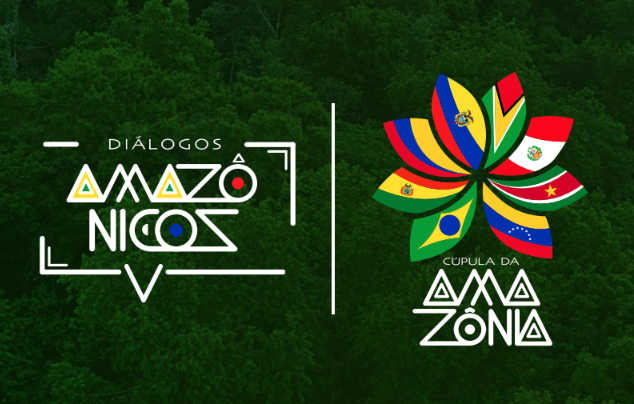Held before the Amazon Summit, ‘Amazon Dialogues’ will bring together government agencies and civil society organizations to guide the formulation of new strategies for the future of the Amazon. These discussion outcomes will be presented to the leaders of the Amazon countries later in August in Belém.
Portuguese version here.
International Rivers will bring our permanent river protection campaign to the Amazon Dialogues event. This event is part of the Amazon Summit taking place August 8 and 9, 2023, bringing together state leaders of the countries of the Amazon Cooperation Treaty Organization (ACTO) in Belém, Brazil. An objective of the event is the articulation of sustainable development proposals.
“In addition to being the largest continuous tropical rainforest on the planet, the Amazon is also the largest river basin in the world, with more than two thousand species of fish and the source of critical regional atmospheric water vapor, often called “flying rivers”. It is a biome that plays a key role in regulating climate temperatures around the world, and much of this is due to the relationship between the forest and the rivers that permeate the basin. For this reason and more, International Rivers will highlight the importance of the preservation symbiosis of “looking at the forest without forgetting the rivers”. One needs the other to survive, and effective actions are needed to protect and preserve the entire river basin ecosystem. That is why it is so important that the topic of permanent protection of rivers and their rights is also widely discussed by regional leaders at the Summit of Presidents of Amazonian Countries”.
Flávio Montiel, manager of International Rivers in Brazil.
Amazonian waters need urgent protection due to threats from mining, pollution, deforestation, destructive extraction of natural resources, and the construction of hydroelectric dams such as the Belo Monte hydropower plant in the Pará state of Brazil.
In 2022, International Rivers carried out an updated assessment of the fifth largest region of the Amazon hydrographic system, the Tapajós basin, warning of threats in the region and reinforcing its potential for a sustainable social bioeconomy. Among the areas of concern in the Tapajós Sob o Sol publication, International Rivers warned of mercury contamination in the region, a heavy metal used in mining throughout the Tapajós basin, especially in the Itaituba region and in the tributaries of the Teles Pires River. According to the study, it is estimated that during the 1980s, more than 120 tons of mercury were dumped in the basin per year. Recently, high concentrations of mercury have been found in Indigenous and riverine populations of the Tapajós River, well above the levels recommended by the World Health Organization (WHO).
The summit is an initiative of the General Secretariat of the Presidency of the Republic of Brazil. The Amazon Dialogues will take place from August 4 and 6 at the Hangar Convention Center in the capital of Pará, and will include participants from Bolivia, Colombia, Ecuador, Guyana, Peru, Suriname, and Venezuela, as well as Brazil. The event will bring together multiple initiatives in the form of seminars, debates, exhibitions, and cultural events to guide the formulation of new strategies for the region. Many are hoping this summit will allow for a more strategic and regional approach to Amazon protections.
International Rivers will participate in multiple activities, including the “Conversation Panel: Infrastructure, Territories and Socio-environmental Rights in the Amazon” which will take place on Friday, August 4 from 2 to 4 pm (Brasília time). The objective of this in-person discussion is to promote the exchange of experiences with major infrastructure projects in the Amazon in the transportation and energy sectors.
Claudio de Oliveira, from GT Infra, a coalition of which International Rivers is a member, says, “The Amazon Dialogues is a space for civil society’s contribution to the vision for the Amazon we want. GT Infra is committed and has joined important civil society networks to amplify the voices of the territory and share experiences in search of improving public policies aimed at infrastructure. We need to include socio-environmental impacts and the perspectives of a new development paradigm when planning works in Brazil, especially in the Amazon. With this in mind, we also sent the letter ‘Infrastructure with socio-environmental sustainability‘, which aims to subsidize the discussions of the Summit. The letter was presented in Letícia, Colombia, during a pre-event of the Amazon Summit.”
For more information: https://www.gov.br/secretariageral/pt-br/assuntos/dialogosamazonicos

